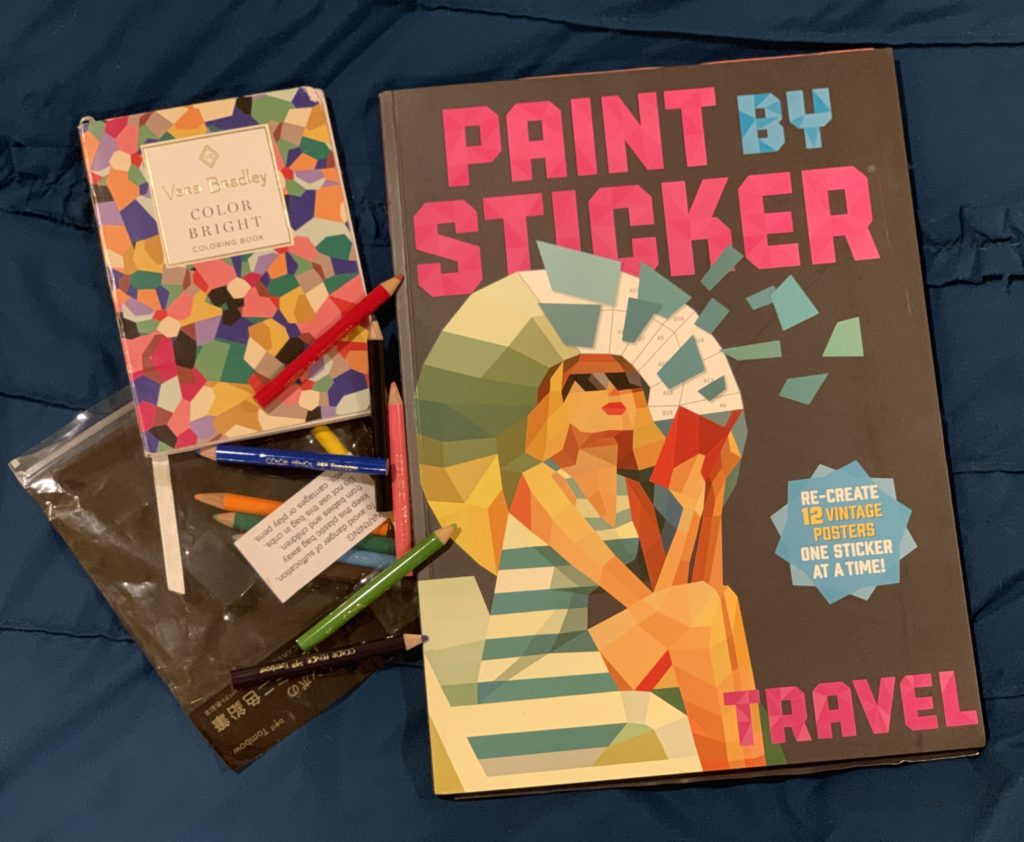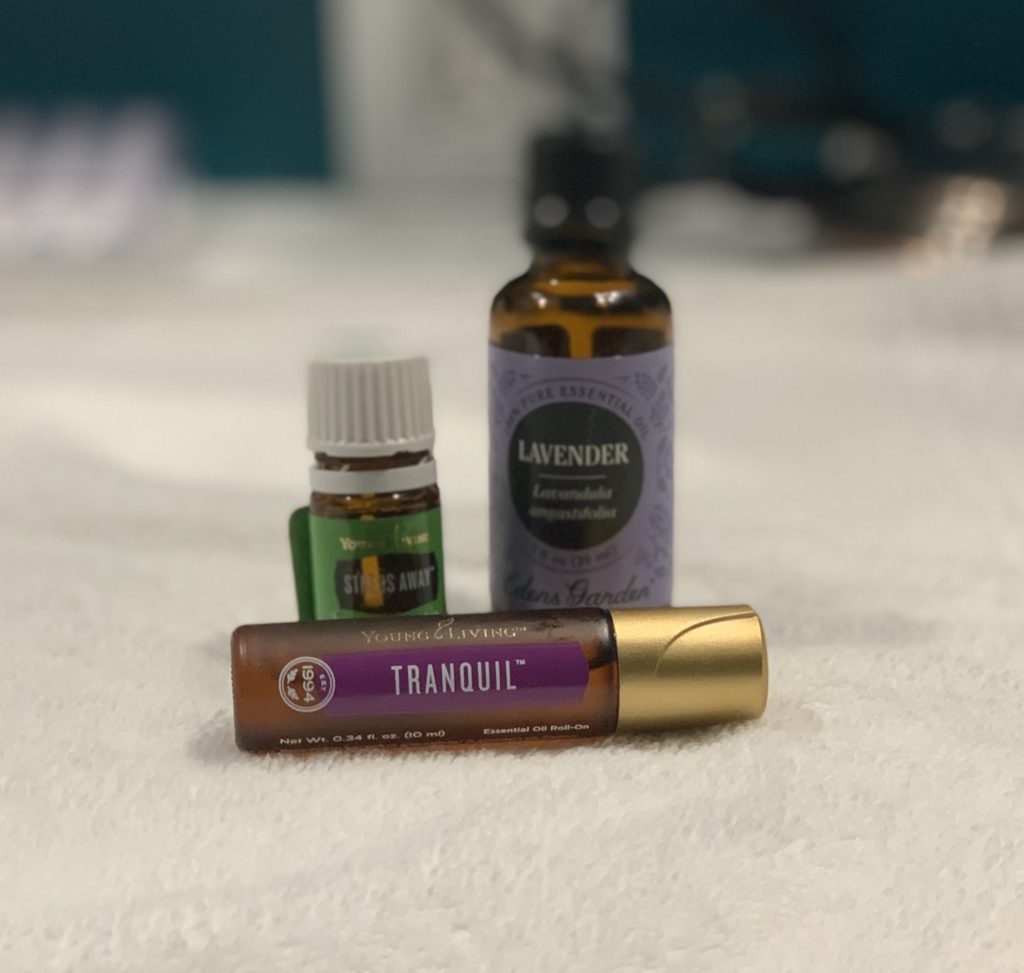Control. When you are a passenger of any aircraft, you have no control over what is happening in the front of the plane. While that might not seem like an issue to most of you, to me, it’s something that has caused me many hours of distress in my lifetime. I hope to impart some helpful ways so that you might have less fearful airplane travel on your next trip.
I didn’t always have such a hard time on planes. I probably took my first flight around the age of 6 from Philadelphia to Miami. As a kid, I was all about window seats. I really enjoyed watching the plane take off and land from that small viewing area. By the time I was 12, I had already flown to Frankfurt with my family, so I was no stranger to longer-haul flights. Sometime in college, I was taking a flight from Dallas to Frankfurt alone to meet my family over there and I, of course, had a window seat. The gentleman I was seated next to fell asleep about an hour after the dinner service, and, me being me, I was too polite to disturb his slumber. Watching the remaining flight time clock was excruciating; I never could really sleep on planes anyway, but when you’ve had to use the restroom for the better part of probably 4 hours, forget it. Since that flight I’m an aisle girl only, no matter the duration of the flight. I’ve taken many one-hour flights, several from Dallas to either coast, and quite a few internationally since then. But, despite all these miles in the air, I’ve become more nervous just being on the plane itself. My fear isn’t so bad that I have ever refused to get on the plane, but some flights have definitely been worse than others. There was the time I was at a conference with my coworkers and as the return flight was boarding, they suspended boarding to search the plane because they suspected something suspicious. Hearing that announcement sent my already nervous mind into overdrive. Thankful for a coworker who noticed my near-meltdown, I had some liquid courage and he mentioned that meditation might work in the future. A few years since that time, I am flying more frequently, and with less stress, so here are the tips that I’ve picked up along the way.
Learn About Aircraft!
Now this first tip is far from an obvious one, so stay with me for a minute. One of my triggers are the noises you hear on the plane, both inside and potentially from the outside. I remember lying awake during the nights before our first trip to Asia, searching online for anything to calm my nerves enough to let me sleep. I stumbled across an article written by a flight attendant that detailed how often something goes awry, there are so many fail safes in place, that there are virtually no ill consequences. The article continued by saying that the typical dings you hear are almost always mundane; one ding is usually from a passenger calling for an attendant, two are for the cockpit to communicate with the attendants. It’s when you hear three dings in succession, that you may have some validation to your worry. The author had said that only occurred once (and he lived to tell us about it) , so again, the likelihood of anything happening is basically non-existent.
You are going to feel some turbulence on every flight. Nearly always a result of the weather, I encourage you to learn about weather patterns and how that impacts airplanes. In very rough air conditions, planes have been seen to actually bend a little- but be glad this happens- otherwise, it would break! Planes are able to withstand an incredible amount of stress, so don’t waste energy worrying about every bump and drop you feel while in the air.
There are many other sites out there that offer courses to have you learn about the way planes work, which allows you to more rationally process what is happening during a flight.
Go With the Plane
This next one is easy to do without any additional time or online searching. In settings where a person feels uncomfortable, they tend to tense up. When this happens on a plane, that person is tense and grips the armrests, sitting quite stiffly in their seat. As I already mentioned above, most turbulence is not cause for concern, but if you’re like me, someone telling you that and feeling it yourself are two different things. Next time you find yourself going through a rough patch of air, try and go with the plane rather than tensing up. Your body will respond better to the bumps if you relax your body and envision yourself moving with the plane instead of against it. I would bet that you’ll come off your flight feeling better, no matter how turbulent is it, since you relaxed a bit and processed that the plane was moving with you rather than thinking you’re just riding in it.
Distractions
Now these next few things can be simply summed up as distractions. When all else fails, and you can’t release the nerves from any other method, try distracting yourself. Many planes used for long haul flights now have in-seat entertainment in all classes, but they aren’t a guarantee, nor are they guaranteed to be functional. I recommend taking your own digital content to keep yourself entertained, just in case, and, it’s stuff you really want to watch which should help keep your mind occupied. Movies, television shows, and music- make sure all your devices are charged, since, just like the in-seat entertainment, you aren’t guaranteed a functioning outlet. Also, I recommend active noise-canceling headphones to help reduce the ambient noises that might intrude on your thoughts. Magazines have lost a lot of their readership in the digital era, but I still enjoy reading one every now and then, so I’ll typically bring a few and leave them behind for the next passenger. I have also dabbled in the adult coloring book trend, going so far as to get quite small-sized books and colored pencils so they don’t take up much space in my luggage, or on the tray table for that matter. For our last trip, I tried out a cool paint by sticker book that has images with over 100 stickers that you have to place to create the final color-image. That book worked out really well and kept me entertained for over an hour at a time. The only drawback to this one is that it’s quite heavy and large, but if you have the room to bring in on board, do it!

Another thing that I use to distract myself are essential oils. Now, I’m still somewhat skeptical about the effects of any oils, but after a year of using them, I’m getting more on board. I use essential oils on my face instead of moisturizer, to hydrate my skin as an alternative to body lotion, to treat my allergy symptoms when they’re getting rough, and to calm me down when I’m getting anxious. Lavender on its own is probably the best single oil to calm nerves and help promote sleep. I also have a few blends that I enjoy, but I encourage you to find what works for you.

After that coworker suggested meditation, I did try and use some apps to aid in some breathing exercises to learn how to calm my nerves through my breath. Mediation didn’t seem to work for me, but I have had a long relationship with yoga. I stumbled upon a video with breathing to help reduce headache symptoms, which has seemed to work in reducing my nerves as well. Place a finger to close your left nostril and inhale. Cover your right nostril and exhale completely, then slowly inhale again holding at top, switch your finger to cover your left nostril and begin the system again. By focusing on your breathing, you’re again distracting your mind from the nervous thought patterns that create the stress and tension and make the duration of your flight miserable.
Fly More Often
The last tip that I can suggest is to fly more often! I have found in years where I can’t travel as much, the next time I do get on a plane, no matter how long the flight will be, I am an anxious wreck. While this is not a practical solution, it does make sense that anytime you engage more often in something that causes a fear response, the response will be less each time you have to encounter it. That said, after taking 10 flights in 3 weeks a few years ago, I was a lot more confident the next time I had to fly!


